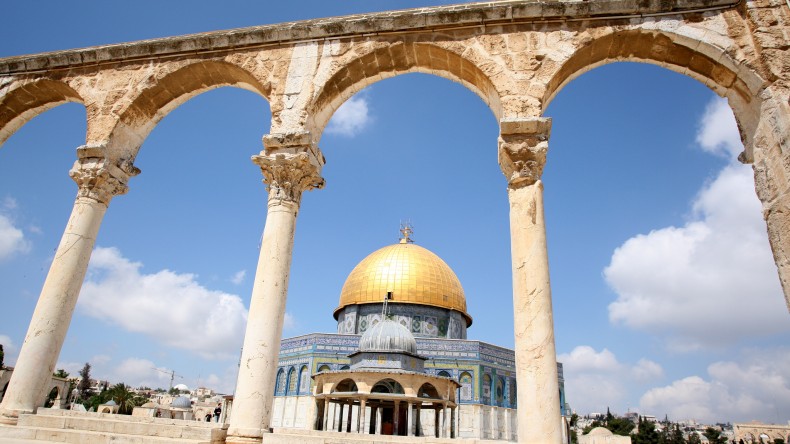THE 5 PILLARS OF ISLAM
SHAHADAH (DECLARATION OF FAITH)
“I bear witness that there is none worthy of worship except Allah (God) and I bear witness that Muhammad (peace be upon him) is the Messenger of Allah.”
The declaration of faith consists of two parts. The core of Islam and the first part of the declaration is tawheed, or the belief that there is only one God and that only He is worthy of worship.
“All praise is due to Allah, Lord of the worlds, The Most Gracious, the Most Merciful, Sovereign of the Day of Judgment. It is You alone we worship and You alone we ask for help. Guide us to the straight path; The path of those upon whom You have bestowed favor, not of those who have evoked Your anger or of those who are astray.” [Surah Al-Fatihah (The Opening) 1: 2-7]
“Say, “He is Allah, who is One; Allah, the Eternal Refuge. He neither begets nor is born, Nor is there to Him any equivalent.”[Surah Al-Ikhlas (Sincerity), 112: 1-4]
“Worship Allah and associate nothing with Him…” [Surah An-Nisa (Women), 4:36]
The second part of the declaration is affirming that Muhammad (peace be upon him) was the last Prophet and Messenger of Allah.
It is related from al-Hasan al-Basri that some people said, “Messenger of Allah, we love Allah,” so Allah revealed,
“Say, [O Muhammad], “If you should love Allah, then follow me, [so] Allah will love you and forgive you your sins. And Allah is Forgiving and Merciful.” [Surah Ali Imran, (The Family of Imran), 3:31]
The Shahadah is the first step in entering Islam. A person who sincerely recites the Shahadah, believing in only one God and that Muhammad was his Messenger, becomes a Muslim.
SALAH (PRAYER)
Following the Shahadah, the next prescribed form of worship is prayer, which is performed five times throughout the day. In Islam, prayers are conducted very differently than prayers in Judaism and Christianity. There is a lot of movement in the prayers, and recitation of the Holy Quran during the prayers. Prayer has the effect of constantly reminding us of God, to restrain from evil and indecent behavior and to adhere to the path of good and righteousness. Prayer is the most prevalent and recurring act worship, meant to remind us of our intentions and keep us in check multiple times during the day.
“Certainly will the believers have succeeded, they who are during their prayer humbly submissive” [Surah Al-Mu’minoon (The Believers), 23:1-2]
“And seek help through patience and prayer, and indeed, it is difficult except for the humbly submissive [to Allah], Who are certain that they will meet their Lord and that they will return to Him.” [Surah Al-Baqara (The Cow), 2: 45-56]
“Verily, in the remembrance of Allah do hearts find peace [rest].” [Surah Ar-Rad (The Thunder), 13:28]
ZAKAT (ALMS)
Zakat is a purification of wealth, designed to help and benefit those in need (i.e. the poor, hungry, orphaned, widowed, ill, etc…), to remind us that all sustenance comes from Allah and to discipline ourselves against egoism and avarice. Zakat, which is obligatory upon all Muslims, is 2.5% of an individual’s total wealth and is paid yearly. Zakat is kind of worship that manifests itself in the form of a social service and helping others.
“Zakat expenditures are only for the poor and for the needy and for those employed to collect [Zakat] and for bringing hearts together [for Islam] and for freeing captives [or slaves] and for those in debt and for the cause of Allah and for the [stranded] traveler – an obligation [imposed] by Allah . And Allah is Knowing and Wise.” [Surah At-Tawba (The Repentance), 9:60]
“And whatever you give for interest to increase within the wealth of people will not increase with Allah. But what you give in Zakat, desiring the countenance of Allah – those are the multipliers.” [Surah Ar-Room (The Romans), 30:39]
SAWM (FASTING)
Fasting during the holy month of Ramadan is mandatory upon Muslims who are capable of fasting. The purpose of fasting manifests itself in two forms. The first purpose is physical, which is to refrain from eating, drinking, smoking, and intercourse. The physical aspect of fasting heightens the sensitivity to the suffering of the poor, as well as increases the awareness of our dependence on sustenance from God. The second purpose of fasting is to cleanse ourselves of sins, mentally and spiritually, by refraining from temptations and indecent behavior such as lying, stealing, cheating, and backbiting. Fasting is a special form of worship that lifts one’s spirit, cleanses one’s soul and lightens one’s heart.
“O you who have believed, decreed upon you is fasting as it was decreed upon those before you that you may become righteous.” [Surah Al-Baqara (The Cow), 2:183]
“The month of Ramadhan [is that] in which was revealed the Qur’an, a guidance for the people and clear proofs of guidance and criterion. So whoever sights [the new moon of] the month, let him fast it; and whoever is ill or on a journey – then an equal number of other days. Allah intends for you ease and does not intend for you hardship and [wants] for you to complete the period and to glorify Allah for that [to] which He has guided you; and perhaps you will be grateful.”[Surah Al-Baqara (The Cow), 2:185]
HAJJ (PILGRIMAGE)
Pilgrimage to Makkah is a once in a lifetime duty for the physically and financially able. It is the ultimate act of worship a person can attain in this life. Hajj is the greatest symbol of unity in Islam, as it brings Muslims from all over the world to Makkah. Muslims of all races, nationalities, and social and economic statuses unite and pray shoulder to shoulder, equally under God.
“And complete the Hajj and ‘umrah for Allah, but if you are prevented, then [offer] what can be obtained with ease of sacrificial animals…” [Surah Al-Baqara (The Cow), 2:196]
“And proclaim to the people the Hajj; they will come to you on foot and on every lean camel; they will come from every distant pass. That they may witness benefits for themselves and mention the name of Allah on known days over what He has provided for them of [sacrificial] animals. So eat of them and feed the poor.” [Surah Al Hajj (The Pilgrimage), 22: 27-28]

